Scaling up for excellence is a strategic approach that empowers businesses to grow sustainably while maintaining high operational standards. Achieving excellence during the scaling up process is critical for long-term success, ensuring that growth is not just fast but also efficient and effective. In this blog, we will explore what it means to scale up for excellence, key pillars of operational success, common challenges, and actionable strategies for mastering business growth.
Understanding the Concept of Scaling Up for Excellence
Scaling up for excellence means growing a business in a way that enhances operational efficiency, profitability, and sustainability. Unlike rapid growth that can lead to burnout and disorganization, scaling focuses on building a strong foundation that supports long-term success. This approach aligns with the Scaling Up method by Verne Harnish, which emphasizes strategic planning, disciplined execution, and a focus on the “Four Decisions”: People, Strategy, Execution, and Cash.
Key Differences Between Growth and Scaling:
- Growth often involves adding resources at the same rate as revenue increases.
- Scaling means increasing revenue without a proportional increase in resources, leading to greater efficiency and profitability.
By embracing the scaling up method, businesses can ensure that their growth is both strategic and sustainable, reducing risks while maximizing potential.
The Core Pillars of Operational Success
1. Strategic Planning
Strategic planning is the foundation of scaling up for excellence. It involves setting a clear vision, defining objectives, and creating a roadmap for achieving them. Businesses should conduct regular SWOT analyses to understand their strengths, weaknesses, opportunities, and threats. Using strategic frameworks like OKRs (Objectives and Key Results) can help align teams and ensure consistent progress.
2. Process Optimization
Efficient processes are key to operational success. Streamlining workflows, eliminating redundancies, and leveraging technology can significantly enhance productivity. Tools like Lean Six Sigma can help identify inefficiencies and improve process outcomes. Automation platforms, such as Zapier, are also instrumental in simplifying repetitive tasks.
3. Talent Development
People are the core of any business, and scaling up for excellence requires investing in talent. This means hiring strategically, fostering a culture of continuous learning, and promoting leadership development. Implementing frameworks like the DISC Personality Assessment can enhance team dynamics and optimize collaboration.
4. Financial Discipline
A solid financial strategy is crucial for sustainable growth. This involves maintaining strong cash flow management, regularly reviewing financial statements, and making data-driven decisions. Using financial management tools like QuickBooks ensures accurate tracking and informed forecasting.
Overcoming Common Scaling Challenges
Scaling up your business is not without its challenges. Here are some common obstacles and strategies to overcome them:
- Operational Bottlenecks: Identify and address workflow blockages that hinder efficiency. Regular process audits can highlight areas for improvement.
- Maintaining Quality: As operations expand, maintaining product and service quality becomes challenging. Establishing quality control standards and KPIs ensures consistency.
- Balancing Innovation and Stability: Encourage innovation while maintaining proven processes. This balance can be achieved by dedicating resources to R&D while preserving core operational standards.
For further guidance, exploring resources from Harvard Business Review can offer valuable insights into strategic scaling and leadership.
Real-World Examples of Scaling Up for Excellence
Case Study 1: Amazon
Amazon’s ability to scale with excellence is attributed to its customer-first approach and relentless focus on operational efficiency. By investing in advanced logistics, automation, and continuous innovation, Amazon has mastered the scaling up process.
Case Study 2: HubSpot
HubSpot successfully scaled by focusing on inbound marketing and investing in scalable technologies. Their commitment to talent development and process optimization allowed for seamless growth while maintaining service excellence.
These examples illustrate that scaling up for excellence requires a balance of strategic vision, efficient operations, and strong leadership.
Tools and Frameworks for Scaling Success
Adopting the right tools and frameworks is vital for mastering the scaling up process. The Scaling Up framework by Verne Harnish provides a comprehensive approach focusing on four key decisions:
- People: Ensure the right people are in the right roles.
- Strategy: Develop a differentiated strategy for sustainable growth.
- Execution: Align team efforts with company goals for efficient execution.
- Cash: Manage cash flow to fuel growth effectively.
Additionally, platforms like Asana for project management and Slack for team communication streamline operations and enhance collaboration.
Scaling Up For Excellence: Conclusion
Scaling up for excellence is about growing your business in a way that prioritizes operational success and long-term sustainability.
By focusing on strategic planning, process optimization, talent development, and financial discipline, businesses can overcome challenges and achieve sustainable growth. Embrace proven frameworks, invest in the right tools, and commit to continuous improvement.
FAQ Section
Q1: What does scaling up for excellence mean?
It refers to growing a business strategically while maintaining high operational standards to ensure sustainable, efficient, and profitable growth.
Q2: How do I know if my business is ready to scale?
Indicators include stable cash flow, consistent demand, efficient operations, and a clear growth strategy.
Q3: What are the first steps to scaling a business successfully?
Begin with strategic planning, optimize internal processes, invest in talent development, and ensure financial readiness.
Q4: What are common mistakes to avoid when scaling?
Avoid overextending resources, neglecting process improvements, and ignoring market feedback.
Q5: How can I maintain quality during rapid growth?
Implement quality control systems, conduct regular audits, and set clear performance indicators to monitor progress.
Ready to master operational success? Start by talking to a renowned Scaling Up Coach, Ken Larson. Ken is offering a free 30 minute discovery call to business leaders who are serious about scaling up right.










